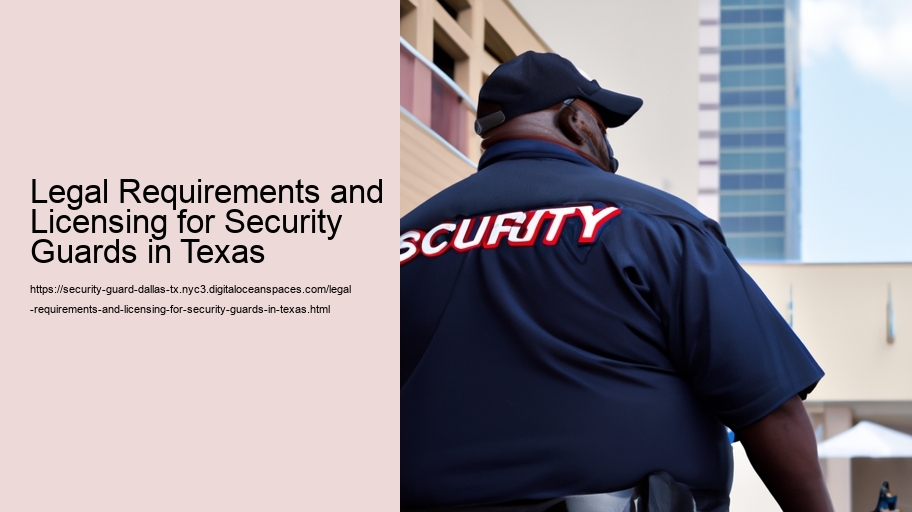Sure, here's an essay following your instructions:
The Role of Technology in Modern Security Guard Services .
---
Navigating the legal requirements and licensing for security guards in Texas can be quite a maze! But don't worry, it's not as daunting as it seems. First things first, if you're thinking about becoming a security guard in this vast state (and who wouldn't?), you need to understand what's expected of you.
To begin with, Texas mandates that all security guards must be licensed by the Texas Department of Public Safety (DPS). You can't just decide to throw on a uniform and start patrolling – there's paperwork involved! The process starts with completing an application form which can be found on the DPS website. It’s essential not to overlook any details because even minor mistakes could delay your approval.
Once you've filled out the form, get ready to shell out some money. There's a fee associated with applying for your license – it ain't free! After submitting your application and paying the necessary fees, you'll also have to undergo a background check. This is non-negotiable; they want to ensure that those entrusted with security roles have clean records. If you've got a criminal history, especially involving violence or theft, don't expect them to look kindly upon it.
Another critical component involves training. In Texas, unarmed security guards need at least 40 hours of training from an approved school or instructor before they can don their badges officially. This training covers essential topics like emergency response procedures, conflict resolution techniques (because let's face it - dealing with people isn't always easy), and report writing skills among others.
But wait – there's more! For those aspiring to become armed security guards, additional steps are required. Beyond the basic 40-hour course for unarmed guards, armed guards must also complete another 30 hours focused on weapon handling and safety protocols specific to firearms use. This includes passing both written exams and practical shooting tests.
Now let’s touch on something crucial: continuing education requirements. Even after getting licensed (yay!), security guards in Texas aren't off the hook when it comes to learning new things or refreshing their knowledge periodically. Continuing education ensures that everyone stays updated with laws changes or any advancements within their field.
One might think these rules are too stringent but consider this: Security guard's role is vital in ensuring public safety so having stringent regulations isn't such bad idea after all!
It's important note here that certain specialized areas may demand further qualifications beyond standard licensing provisions mentioned above - private investigators being one example where additional certifications might come into play depending upon nature work involved therein.)
In conclusion: while navigating through legalities surrounding licensing processes might seem overwhelming initially(!) perseverance pays off ultimately leading toward rewarding career safeguarding community interests effectively without compromising personal integrity along way either!
